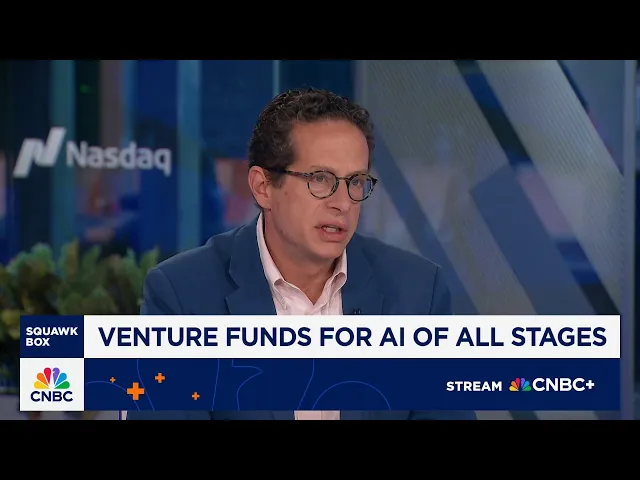AI fundamentally changes the value proposition of time, says Tenacity’s Ben Narasin

How AI alters the economics of time
In a recent CNBC interview, Tenacity Venture Capital founder Ben Narasin shared a perspective that should make every business leader sit up and take notice. According to Narasin, artificial intelligence isn't just another technology evolution — it represents a fundamental shift in how we should value and allocate time within our organizations. This paradigm shift arrives as companies struggle to determine where AI fits into their strategy, with some rushing to implement while others adopt a wait-and-see approach.
Key insights from Narasin's perspective:
-
Time value proposition: AI fundamentally changes the economics of time by transforming labor-intensive tasks into near-instantaneous operations, effectively collapsing time constraints that previously defined business processes.
-
Market impact: While many investors focus on which AI companies will dominate, Narasin argues the bigger story is how AI transforms the value proposition across all industries by dramatically accelerating productivity.
-
Cost structure evolution: The cost of knowledge work will shift as AI handles increasingly complex cognitive tasks, forcing businesses to reconsider how they price services and allocate human resources.
The time compression revolution
The most compelling insight from Narasin's interview is his framing of AI as a "time machine" that fundamentally alters business economics. This isn't merely about efficiency gains — it's about a structural transformation in how we conceptualize the relationship between time, value, and competitive advantage.
Consider what happens when tasks that once took days can be completed in minutes or seconds. The entire basis for pricing services, allocating resources, and measuring productivity becomes obsolete. Companies that fail to recognize this shift risk pricing themselves out of relevance while competitors leverage AI to deliver superior services at lower costs and unprecedented speed.
This perspective matters because most businesses still operate within traditional time frameworks. Quarterly planning cycles, project timelines measured in months, and service delivery expectations based on historical norms all assume certain time constants that AI is rapidly invalidating. The companies that thrive will be those that reimagine their entire business model around these new time economics.
Beyond the obvious applications
While Narasin focuses primarily on the broad economic implications, there are several critical dimensions he doesn't fully explore. First is the psychological impact of time compression on decision-making. When AI can generate multiple high-quality
Recent Videos
How To Earn MONEY With Images (No Bullsh*t)
Smart earnings from your image collection In today's digital economy, passive income streams have become increasingly accessible to creators with various skill sets. A recent YouTube video cuts through the hype to explore legitimate ways photographers, designers, and even casual smartphone users can monetize their image collections. The strategies outlined don't rely on unrealistic promises or complicated schemes—instead, they focus on established marketplaces with proven revenue potential for image creators. Key Points Stock photography platforms like Shutterstock, Adobe Stock, and Getty Images remain viable income sources when you understand their specific requirements and optimize your submissions accordingly. Specialized marketplaces focusing...
Oct 3, 2025New SHAPE SHIFTING AI Robot Is Freaking People Out
Liquid robots will change everything In the quiet labs of Carnegie Mellon University, scientists have created something that feels plucked from science fiction—a magnetic slime robot that can transform between liquid and solid states, slipping through tight spaces before reassembling on the other side. This technology, showcased in a recent YouTube video, represents a significant leap beyond traditional robotics into a realm where machines mimic not just animal movements, but their fundamental physical properties. While the internet might be buzzing with dystopian concerns about "shape-shifting terminators," the reality offers far more promising applications that could revolutionize medicine, rescue operations, and...
Oct 3, 2025How To Do Homeless AI Tiktok Trend (Tiktok Homeless AI Tutorial)
AI homeless trend raises ethical concerns In an era where social media trends evolve faster than we can comprehend them, TikTok's "homeless AI" trend has sparked both creative engagement and serious ethical questions. The trend, which involves using AI to transform ordinary photos into images depicting homelessness, has rapidly gained traction across the platform, with creators eagerly jumping on board to showcase their digital transformations. While the technical process is relatively straightforward, the implications of digitally "becoming homeless" for entertainment deserve careful consideration. The video tutorial provides a step-by-step guide on creating these AI-generated images, explaining how users can transform...
